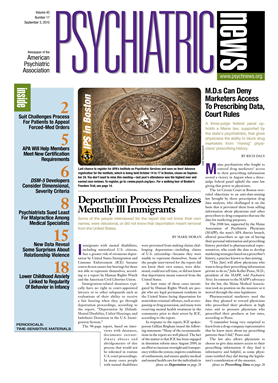Many states whose revenues have plunged due to the recession will be able to avoid implementing massive reductions in their Medicaid programs following congressional passage of a bill that extends federal financial assistance to those programs.
About $16 billion in Medicaid assistance was included in a $26 billion measure (HR 1586) passed in August and signed by President Obama that will also provide states with funds to rehire public-school teachers and other state and local government workers who lost their jobs due to funding cuts resulting from budget shortfalls.
The Medicaid appropriation will extend by an additional six months—to June 30, 2011—an increase in federal Medicaid payments to the states, known as the Federal Medical Assistance Percentage, that was enacted as part of the federal stimulus measure (PL 111-5).
About 60 percent of states had already passed budgets that assumed the federal government would provide the additional Medicaid assistance in the wake of falling tax revenues during the recession. If the added federal funding had fallen through, those state legislatures would have had to scramble to find sufficient cuts or tax increases to make up the difference.
The National Governors Association, in a letter to congressional leaders, said that the states' total estimated budget shortfall for the 2010-2012 period is expected to be $116 billion. The letter described the extended Medicaid payments as “the best way to help states bridge the gap between their worst fiscal year and the beginning of recovery.” Medicaid is dually funded by states and the federal government. The measure provides a 6.2 percent across-the-board increase to each state's Medicaid program and extra funding for states with the highest unemployment rates.
The federal Medicaid boost was urged by mental health advocates, who were alarmed that many states had already sought budget savings through cuts in their mental health programs and that more such cuts could result from a lack of additional federal assistance.
For instance, Michigan Gov. Jennifer Granholm (D) said in July that her state would cut mental health and prescription drug coverage under its Medicaid program if the state didn't receive the full $560 million it needed in federal Medicaid assistance, according to local media reports.
“Medicaid is the primary funder of community-based mental health services and supports, including psychiatric rehabilitation and intensive case management,” said Laurel Stine, director of federal relations at the Bazelon Center for Mental Health Law. “The passage of this extension will help ensure that states can continue providing vital health care and recovery-oriented services and help fulfill community integration efforts for many individuals with disabilities.”
Those who urged Congress to increase Medicaid funding highlighted the program's expansive coverage—compared with many private insurance plans—of treatment for psychiatric illnesses. Medicaid is already the largest single payer for mental health care in the United States, funding about 25 percent of such care. Advocates link the current number of Americans who have recently turned to Medicaid for their mental health care to their difficulties finding jobs that offer health insurance while struggling with the challenges of psychiatric illness.
But funding mental health treatment could actually save states money by avoiding other costly medical and criminal-justice spending on people whose untreated mental illness results in deterioration of their condition. For instance, the New England Healthcare Institute estimated that the cost of poor medication adherence—linked to increased hospitalizations and worsening of illnesses—already reaches $290 billion annually, or 13 percent of all health care expenditures.
Republicans in Congress objected to the Medicaid measure because of the way it is to be paid for, which is in part through raising $10 billion in taxes from U.S.-based multinational companies, while antipoverty activists complained that other offsets would phase out an increase in food-stamp payments implemented through the stimulus measure.
